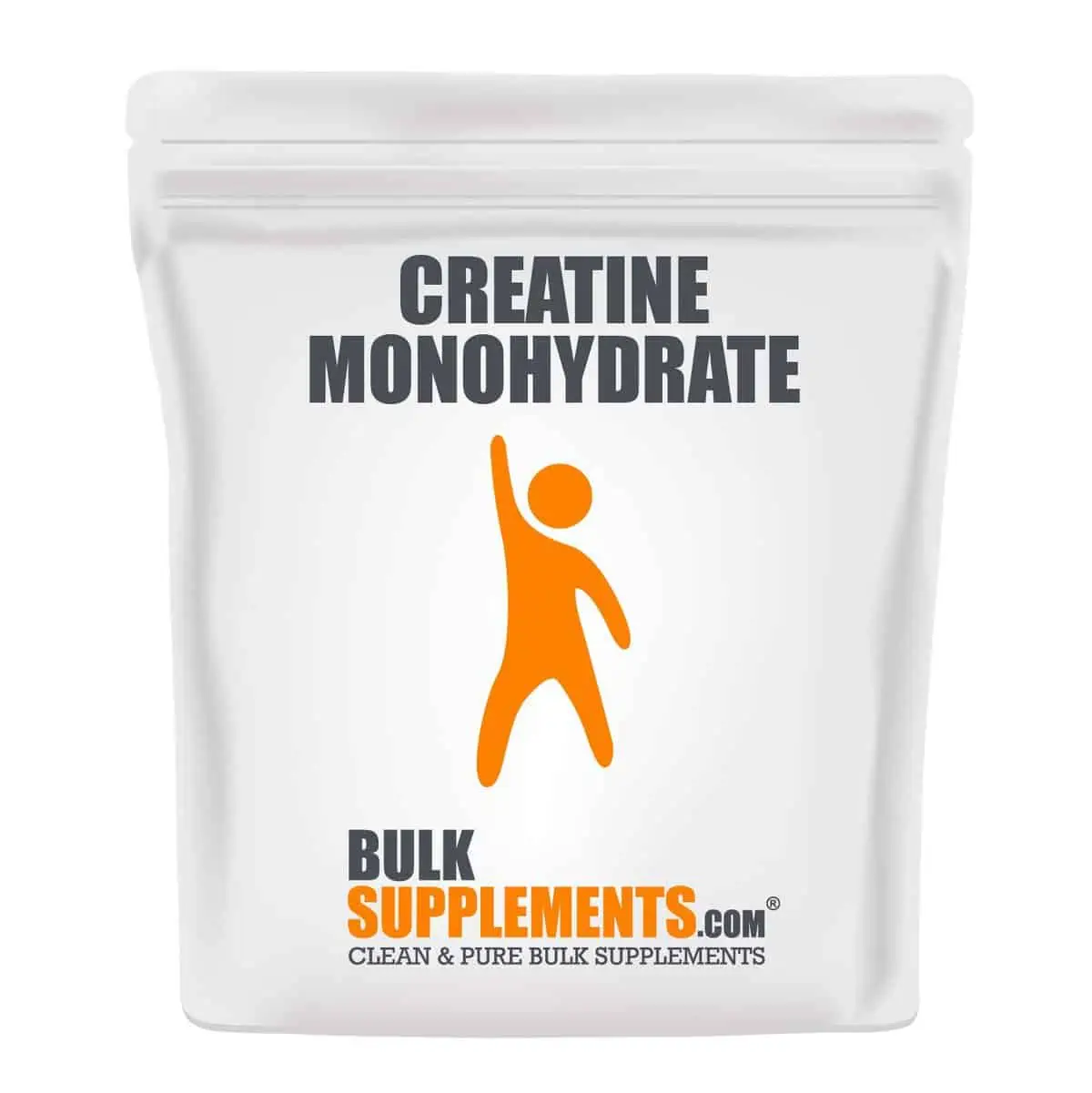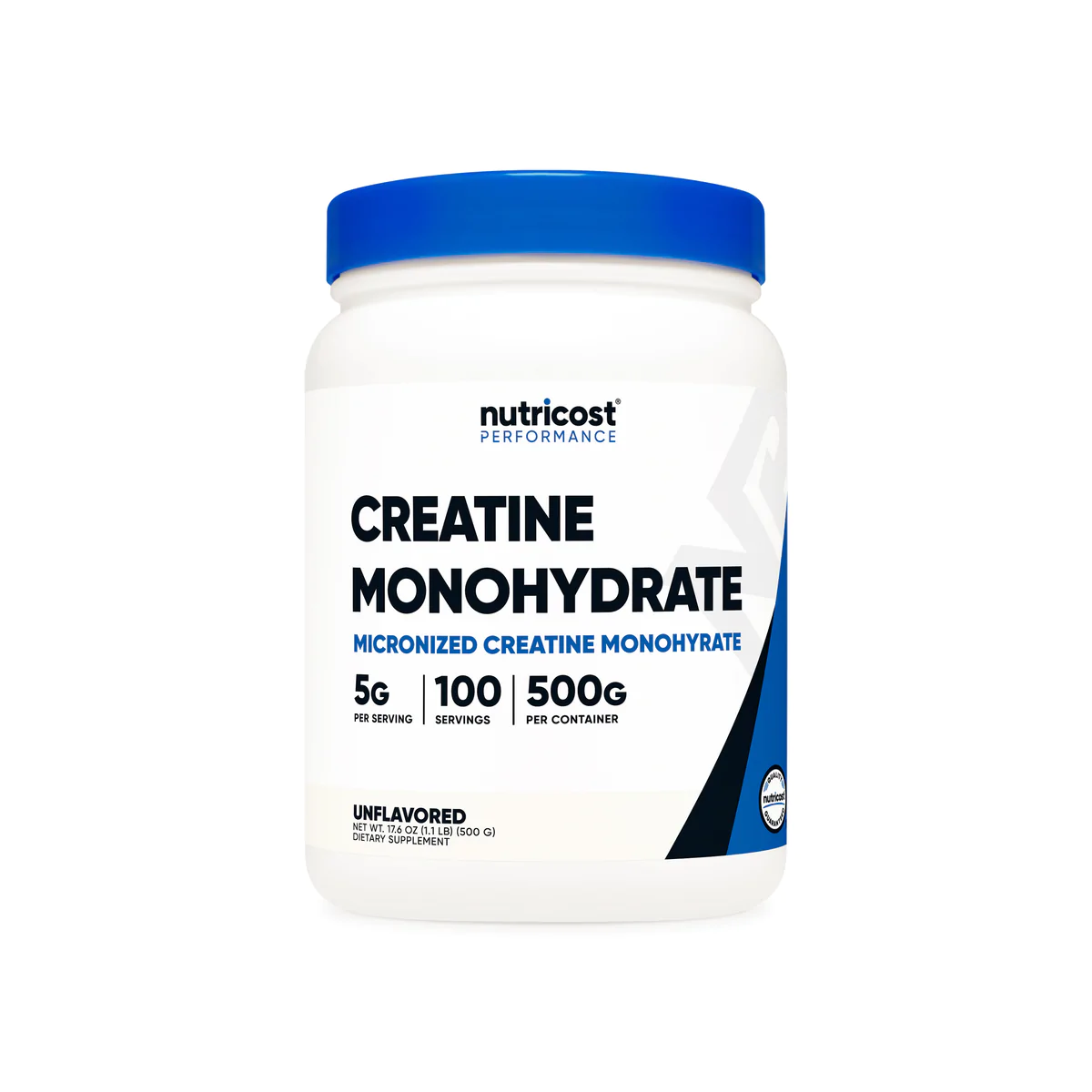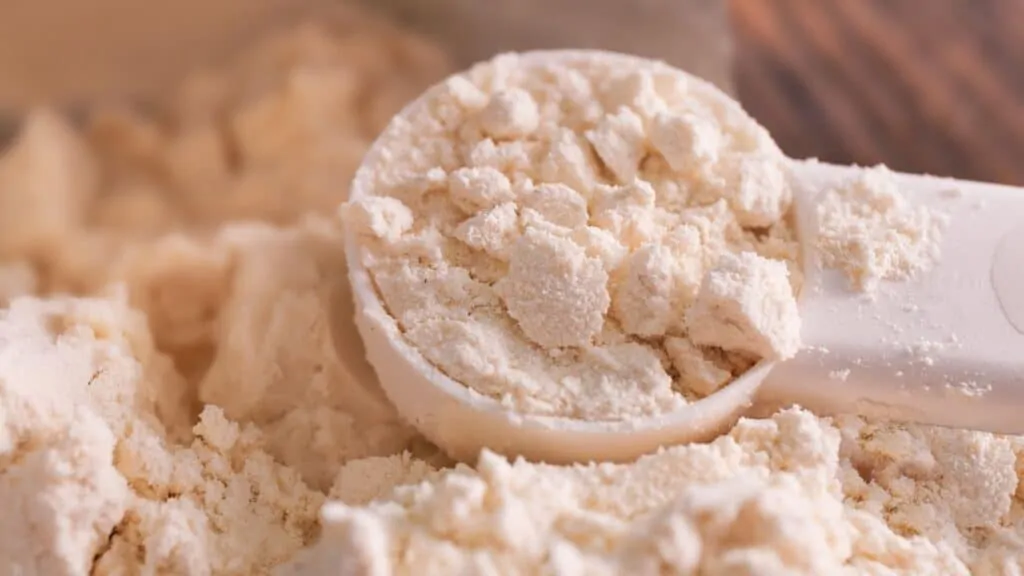Similar to how it helps men, research has shown that creatine for women can also assist in maintaining their energy levels and growing muscle. The liver and kidneys spontaneously manufacture the nonprotein amino acid molecule creatine. Animal protein sources include it. People who don’t eat meat or fish could have decreased creatine levels.
Most of the body’s creatine is stored in skeletal muscle and used when exercising.
Athletes and senior citizens who want to increase their muscle mass and perform better during exercise may use creatine supplements.
Table of Contents
Key Highlights of Creatine for Women
- It generates ATP for energy and sends signals to build muscles.
- Higher creatine levels mean more ATP and, therefore, higher energy for longer, strenuous exercise sessions
- Enables longer and harder physical training sessions, and quicker muscle growth and regeneration. The resultant water retention in muscles gives a fuller, swollen look.
Why Should Women Consider Taking Creatine?
Most women believe that taking creatine is only necessary if you wish to build significant strength or muscle. They’ve also heard that taking creatine leads to weight gain and water retention.
Your body spontaneously produces creatine from the precursor amino acids arginine, glycine, and methionine, mostly in the liver.
Although creatine is composed of amino acids, it is not regarded as a protein because of how it is digested. Unlike proteins, when creatine is broken down and eliminated from the body by the kidneys, nitrogen is not removed.
Is it safe to consume creatine supplements?
One of the dietary supplements that have been most thoroughly researched is creatine monohydrate. Very few occurrences of muscle cramps, dehydration, liver damage, kidney damage, and stomach issues associated with its use have been documented.
High dosages of creatine appear to be both short-and long-term safe unless there is an underlying renal condition.
In fact, supplementing with creatine can offer a wide range of therapeutic advantages to healthy and ailing populations.
It is advisable to take creatine after exercise or with a meal. Overall, though, ingesting creatine at any time is generally safe in the long run because its primary mechanism is the storage of itself within muscles.
For the first 5-7 days, consume 20 grams of creatine daily. Then consume 3-5 grams daily. Because supplementing with creatine has no significant negative effects, you should be able to take it forever. Creatine does not require cycling. Buy it in bulk to save even more money because you can consume it till you die.
The Primary Benefits of Creatine for Women
- Improved aerobic performance and aerobic exercise
- Greater gains in muscle mass
- Positive effects on daily activities and neurological function
- Improved recovery from intense training
- Increased strength and hypertrophy due to increased performance output
- Manage fatigue during higher-intensity training. If an extended vacation or a training break is planned
Creatine is, therefore, advantageous for the majority of healthy people.
How Does Creatine Work?
By replenishing ATP (adenosine triphosphate), the energy currency of your muscle cells, creatine enables your muscles to maintain energy.
Creatine in your muscles reacts with a phosphate (Pi) molecule to form phosphocreatine (PCr). In its new form, PCr is essential for energy metabolism in muscle cells, especially during activities like weightlifting and sprinting that call for quick bursts of high energy.
Does Creatine Work for All Women?
Some people respond to supplementing with creatine, and those that do not (non-responders). Some research on women has found no effects. This is because women do not respond to the benefits of creatine in terms of increased muscular strength, power, or aerobic capacity.
The size of the cross-sectional area of muscle fibres and the type of muscle fibres a person has, in particular, may be related to the non-responder phenomena. Compared to those with less fast twitch fibres or smaller muscle cross-sectional areas, men and women with more fast twitch fibres (strength muscle fibres) might have greater muscle creatine after seven days.
Regarding biological sex, men and women who engage in more aerobic exercise than strength training typically have larger cross-sectional muscle fibre areas of both their fast and slow twitch fibre types.
Women may need to consume more creatine than men do, or more than 3 to 5 grams per day, to raise their levels above their natural levels because they have an average total muscle creatine content that is 10% higher in women than in males.
Will Creatine make me Bloated or Gain Weight?
Many women avoid creatine because they have heard it can promote water retention, which some of us already face during specific times of the month. It’s interesting to note that men tend to retain more water than women, with an average rise of 1.5 to 2.0 kg.
Creatine may cause you to gain a little weight, much like any woman starting out in weightlifting who starts gaining greater muscle mass. Some women may panic a little when their weight increases due to muscle building. However, they soon feel much better when they notice how much better their clothes fit as they get leaner.
Women may occasionally retain water when consuming creatine for the first few weeks, but this effect seems to wear off over time. As previously advised, if you begin taking creatine, wait until your body has had time to experience its benefits before deciding to stop.
What is the Purpose of Creatine?
Potential ergogenic benefits of creatine supplementation include:
- Increased single and repetitive sprint performance.
- Increased work is performed during sets of maximal-effort muscle contractions.
- Increased muscle mass and strength adaptations during training
- Enhanced glycogen synthesis
- Increased anaerobic threshold
- Possible enhancement of aerobic capacity via greater shuttling of ATP from mitochondria
- Increased work capacity.
- Enhanced recovery
- Greater training tolerance
Why should I be taking Creatine?
- Strength Jolt
A California study indicates that by consuming creatine, you may be helping your muscles build phosphocreatine, which gives you the ability to perform better at shorter, intense strength-building exercises.
- Brain Waves
Australian researchers determined creatine supplementation helped study supplements more quickly process information, and they also benefited from an improved memory.
- Muscle Growth
Washington State University researchers determined that participants supplementing with creatine were able to gain significant muscle mass and strength in myogenic satellite cells, which are important in the regeneration and overall maintenance of skeletal muscle.
Therefore, Creatine has been recognized as a product that delivers on its promise of improved strength. It is a popular bodybuilding supplement used for years to enhance muscle growth and ensure maximum gym gains.
What Type of Creatine Should Women Take?
As indicated at the beginning of this article, the most extensively studied and widely used of all the various forms of creatine on the market is creatine monohydrate. Although different forms of creatine are available today, creatine monohydrate seems to be the most popular.
Creatine ethyl ester, sometimes called CEE, is one of the most well-liked substitutes for creatine monohydrate. Regarding muscle creatine concentration, body composition, strength, or power, research has not discovered any advantages above creatine monohydrate.
Is it safe to take Creatine while Pregnant?
Taking creatine is safe and might even provide special advantages for your child. However, before allowing this information to influence your choices, always speak with your doctor to ensure confidence.
Creatine may also benefit foetuses subjected to low oxygen levels throughout pregnancy or delivery (hypoxia). This is because creatine stabilises the lipid membranes of the brain and protects it from oxidative stress.
What are the primary reasons that make you sick after taking creatine?
- You are mixing creatine with excessive refined sugar.
- You are taking too much creatine.
- You are not drinking enough water.
- You are experiencing electrolyte imbalances.
- You are taking medications that interact with creatine
How quickly does Creatine work?
It varies from person to person based on how much creatine your body already has. However, it usually takes about 28 days to show effective results in the body.
On the other hand, it might be unsafe to consume creatine if you are aiming for weight loss or are dehydrated.
What happens if you stop taking Creatine for a Week?
The impact of stopping Creatine consumption:
- Loss in water weight
- Less energy in the muscle
- Decline in strength
- Increase in fatigue
- Withdrawal
- Less natural creatine production
Interactions and Adverse Consequences
People that take creatine supplements could go through:
- Constipation
- Nausea
- Diarrhoea
- The excess weight is brought on by gaining muscle or fluid retention cramps.
- Muscular pains
7 Best Creatines for Women in the Market Today
BulkSupplements.com Creatine Monohydrate Powder

By boosting the quantity of ATP available to your body’s muscles, micronized creatine monohydrate, also known as creatine monohydrate powder, can improve performance in short-duration, high-intensity exercises like weightlifting.
Additionally, a pre-workout supplemented with creatine shortens the time needed for recovery between sets, so you may work out longer and harder than previously.
Cellucor Cor-Performance Creatine Monohydrate

Micronized creatine is fluffier and disperses more easily in water than regular creatine. This makes it easier to digest and faster to get into the muscles.
COR-Performance Unflavored creatine can be added to pre-workout or amino-recovery products to boost their effects. Some people avoid sucrose and acesulfame potassium, which are artificial sweeteners.
Cor-Performance Creatine is manufactured at GMP-compliant plants, which may reassure athletes concerned about illegal chemicals.
Thorne Research Creatine

Dietitians and athletes like Thorne Research, and 11 U.S. Olympic teams have partnered with them. Thorne products are known for their exceptionally high quality.
Some reviewers say it doesn’t dissolve effectively like other pure creatine products. According to Thomason, some people report experiencing GI pain (a known side effect of taking too much creatine).
Nutricost Creatine Monohydrate

One of the most affordable creatine sources is Nutricost, which sells 200 servings for about $30.
This creatine is third-party tested and created with Creapure, standardised, vegan creatine that is also used in many high-quality products, including Thorne Research Creatine. However, it is not sport-approved.
Optimum Nutrition Micronized Creatine Monohydrate Capsules

You would need to consume 4 capsules of these Optimum Nutrition capsules to achieve the typical 5-gram serving that most powders offer, which is 2.5 grammes per serving of 2 capsules.
It supports muscle size, strength, and power when paired with high-intensity activities.
Regardless, reviews enjoy the capsules’ efficiency, although others say they are bulky and challenging to swallow.
Klean Athlete Klean Creatine

For athletes, Klean Athlete is an expert in high-quality supplements. This creatine is much like the rest of its products, which are all NSF Certified for Sport. It is vegan because it solely contains Creapure.
Reviewers enjoy it and claim it is absolutely flavourless and dissolves easily when thoroughly mixed. One reviewer adds that because Klean Athlete tests for all chemicals prohibited by the NCAA, it’s a good choice for college athletes.
MuscleTech Platinum 100% Creatine

An excellent and reasonably priced creatine powder for women that comes unflavored and is simple to mix in whatever sort of liquid you like. It’s among the top supplements for pure creatine available today.
The direct delivery of creatine to your muscles has been demonstrated in clinical studies.
Conclusion
It is an organic substance that is primarily present in the muscles. The most well-known and extensively studied dietary supplement and it is crucial for preserving energy availability. Any healthy person can consume it without any ill effects.
Given that the FDA does not approve supplements in the same manner as prescription pharmaceuticals, whether a product has undergone third-party testing is another crucial factor to consider. Before using a supplement, a person should always discuss it with their doctor or another licensed healthcare provider.
FAQS
- Do Women need to take creatine?
No excuse exists for women not to take creatine, as doing so may only help them gain lean muscle mass, perform better, and speed up their recuperation.
- Which creatine do women need to take?
You should always look for goods containing creatine monohydrate because it is the best supplement. Make sure that the monohydrate is the predominant form of creatine in the product, even if it contains other forms.
- How does taking creatine affect women?
Women who take creatine supplements have been demonstrated to increase and maintain their lean muscle mass and higher energy levels during harder workouts, including sprints, resistance training, and high-intensity interval training (HIIT).
- What dosage of creatine should a woman take?
The doses for men and women are the same. The recommended serving quantity is three to five grams per day unless you’re loading creatine, which often entails taking about 20 grams daily. This will more than suffice to encourage muscle development, increase muscle strength, and aid in recuperation. The standard scoop weight is 7 g.




